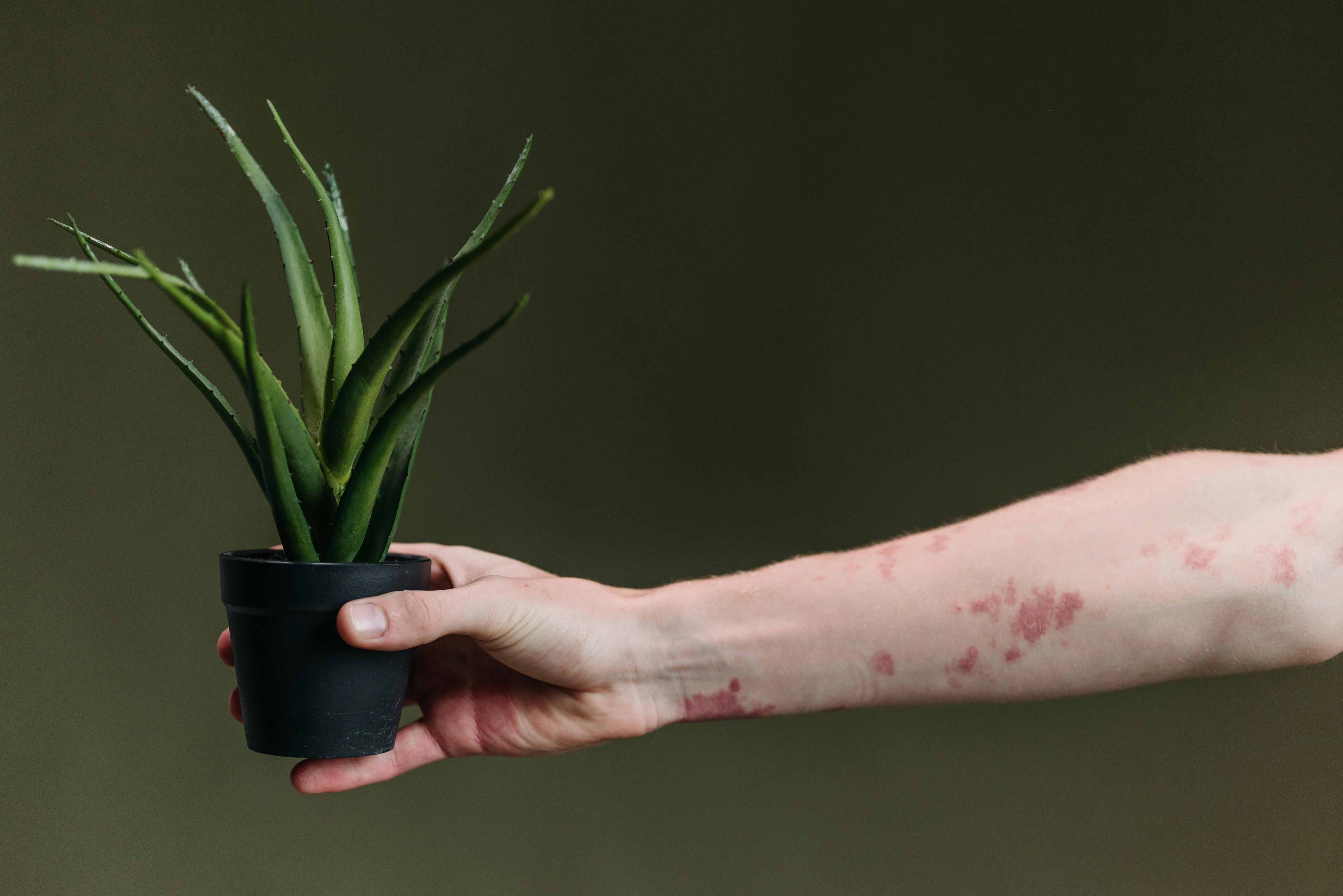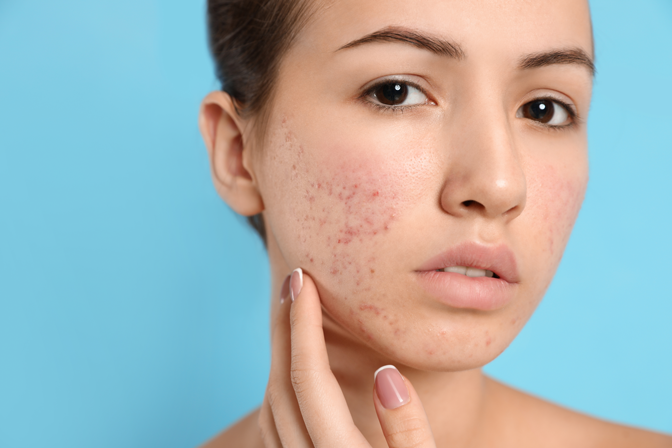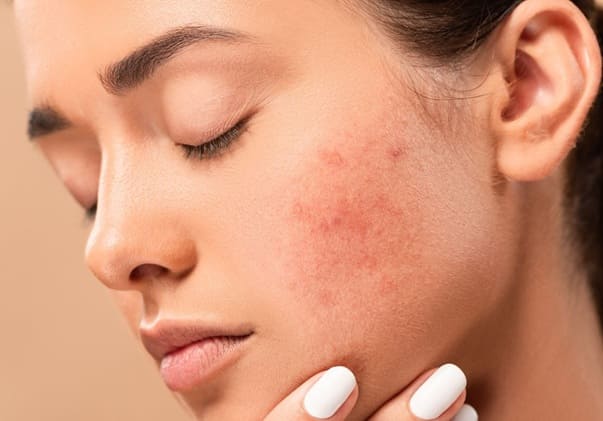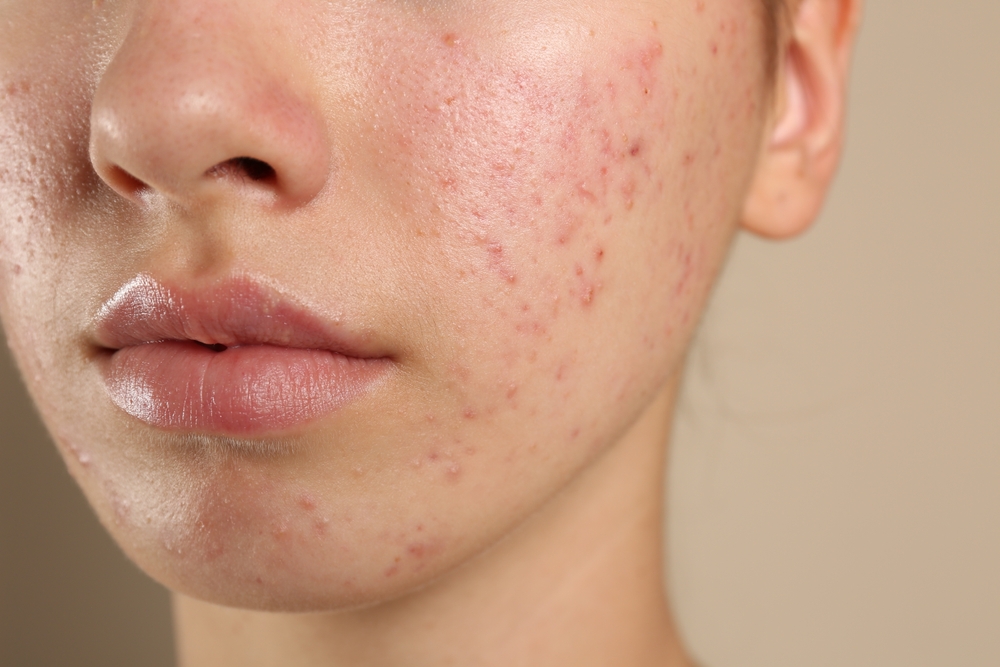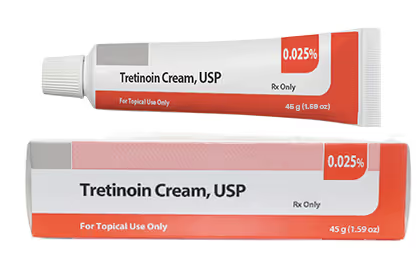Living with a persistent and inflammatory skin condition like psoriasis or eczema involves navigating a world of treatments to find what truly brings relief. For severe flare-ups, one of the most effective tools in a dermatology provider's arsenal is Clobetasol. This potent topical steroid can provide rapid and powerful relief from the intense itching, redness, and scaling that define these conditions. Understanding how it works, its proper use, and its place within a comprehensive treatment plan is key to harnessing its benefits safely.
This guide offers a comprehensive overview of Clobetasol, explaining what it is, the conditions it treats, and how it compares to other therapies. We will explore its mechanism, benefits, and the importance of professional guidance to ensure the best possible outcomes for your skin.
What is Clobetasol?
Clobetasol propionate is a very high-potency topical corticosteroid, often referred to as a "super-potent" or Class I steroid, which is the strongest class available. Corticosteroids are synthetic versions of cortisol, a hormone naturally produced by the adrenal glands that plays a crucial role in reducing inflammation and suppressing the immune system. When applied to the skin, Clobetasol delivers a powerful anti-inflammatory effect directly to the affected area, making it an extremely effective short-term treatment for severe dermatological conditions.
Because of its strength, Clobetasol is a prescription-only medication. Its use requires careful medical supervision to maximize its significant benefits while minimizing potential side effects. It is designed to bring severe, stubborn flare-ups under control quickly, often serving as a "rescue" therapy before a patient transitions to a less potent, long-term maintenance treatment. At Honeydew, our licensed providers are experienced in prescribing high-potency treatments like Clobetasol, ensuring it is used appropriately as part of a personalized and holistic care plan.
How Does Clobetasol Work on the Skin?
The effectiveness of Clobetasol lies in its multi-faceted approach to calming skin inflammation at a cellular level. When you apply it to your skin, it is absorbed by the skin cells and goes to work in several ways:
- Reduces Inflammation: Clobetasol binds to glucocorticoid receptors inside skin cells. This action blocks the production of various inflammatory mediators, such as prostaglandins and leukotrienes, which are the chemical messengers that trigger the symptoms of inflammation like redness, heat, and swelling.
- Suppresses Immune Response: Conditions like psoriasis and eczema are driven by an overactive immune response in the skin. Clobetasol suppresses this local immune activity, preventing immune cells from attacking healthy skin tissue and thus calming the underlying cause of the flare-up.
- Constricts Blood Vessels: Clobetasol causes vasoconstriction, which is the narrowing of small blood vessels (capillaries) in the skin. This reduces blood flow to the affected area, which in turn helps to decrease redness and swelling.
- Slows Skin Cell Production: In psoriasis, skin cells multiply far too quickly, leading to the buildup of thick, scaly plaques. Clobetasol slows down this rapid cell turnover, allowing the skin to return to a more normal state and reducing the thickness and scaling of psoriatic lesions.
This powerful combination of effects allows Clobetasol to deliver rapid results, often providing noticeable relief from itching and inflammation within just a few days of starting treatment. Understanding this mechanism is part of the educational approach we take at Honeydew, where our providers ensure you know not just what to use, but why it works for your skin.
What Skin Conditions Does Clobetasol Treat?
Clobetasol is reserved for severe, inflammatory skin disorders that have not responded adequately to lower-potency topical steroids. Its primary use is for short-term control of intense flare-ups.
Psoriasis
Psoriasis is an autoimmune condition characterized by thick, red, scaly patches of skin known as plaques. Clobetasol is highly effective for treating moderate to severe plaque psoriasis, especially on the body, elbows, and knees. By slowing cell growth and reducing inflammation, it can dramatically reduce the scaling, itching, and discomfort associated with psoriatic plaques. It is typically used for a short course, often two weeks, to gain control of a flare before switching to a milder steroid or a different type of maintenance therapy. For patients with persistent or widespread psoriasis, Clobetasol may not be a practical long-term solution. In these cases, Honeydew providers can explore cutting-edge systemic treatments, including biologics like Skyrizi and Tremfya, which target the specific immune pathways that cause psoriasis, offering more comprehensive and lasting relief.
Eczema (Atopic Dermatitis)
For severe and stubborn flare-ups of eczema, Clobetasol can be a game-changer. Eczema causes intense itching, and the resulting scratching can lead to a vicious itch-scratch cycle that damages the skin barrier and worsens inflammation. Clobetasol's potent anti-inflammatory action can quickly break this cycle, providing rapid relief from severe itching and allowing the damaged skin to begin healing. It is particularly useful for areas of thickened, leathery skin (lichenification) that can develop from chronic scratching. However, because of its potency, it is not a first-line or long-term treatment for most cases of eczema. For ongoing management, our providers often recommend other effective treatments, such as non-steroidal topicals like Tacrolimus or advanced biologic therapies like Dupixent for moderate-to-severe cases.
Other Dermatological Uses
Beyond psoriasis and eczema, Clobetasol is prescribed for a variety of other skin conditions that involve severe inflammation or autoimmune processes. These include:
- Lichen Sclerosus: A chronic inflammatory condition that typically affects the genital and anal areas, causing white patches, thinning skin, and itching.
- Lichen Planus: An inflammatory condition that can affect the skin, hair, nails, and mucous membranes, causing purplish, itchy, flat-topped bumps.
- Discoid Lupus Erythematosus: A chronic autoimmune skin condition that causes inflamed, scaly, coin-shaped sores, often on the scalp, face, and ears.
- Alopecia Areata: An autoimmune disorder that causes patchy hair loss. Clobetasol can be used to reduce inflammation around the hair follicles and encourage regrowth.
- Severe Allergic Contact Dermatitis: For extreme reactions to substances like poison ivy, Clobetasol can quickly calm the intense inflammation and blistering.
Forms of Clobetasol
Clobetasol is available in several different formulations. The choice of formulation depends on the location and type of skin lesion being treated, as each base has unique properties.
- Ointment: Ointments are greasy and occlusive, meaning they form a barrier on the skin that helps lock in moisture. This makes them ideal for treating very dry, thick, or scaly conditions like plaque psoriasis. The occlusive nature also enhances the penetration and potency of the Clobetasol.
- Cream: Creams are a mixture of oil and water, making them less greasy than ointments. They are easy to spread and are absorbed well, making them a good choice for weeping or oozing skin conditions and for use in skin folds where an ointment might be too occlusive.
- Gel / Solution: Gels and solutions are alcohol-based and dry quickly without leaving a residue. This makes them particularly suitable for use on hairy areas, such as the scalp, where creams or ointments would be messy and difficult to apply.
- Foam / Shampoo: These formulations are specifically designed for treating scalp psoriasis. They are easy to apply to the scalp, can penetrate through hair, and are cosmetically elegant, making them a preferred choice for many patients.
Your Honeydew provider will work with you to choose the most effective and practical formulation for your specific condition, skin type, and lifestyle, ensuring your treatment is as convenient as it is effective.
How to Use Clobetasol Safely and Effectively
The key to using Clobetasol successfully is to follow your provider's instructions precisely. Its power is its greatest benefit, but also the reason it requires careful handling.
- Apply a Thin Layer: You only need a very small amount. A common guideline is the "fingertip unit" (FTU)—the amount of cream or ointment squeezed from a standard tube that reaches from the tip of an adult finger to the first crease. One FTU is enough to cover an area of skin twice the size of an adult's flat hand.
- Apply Only to Affected Areas: Do not apply Clobetasol to healthy skin. Target only the plaques, patches, or lesions that require treatment.
- Use for a Limited Time: Clobetasol is almost always prescribed for short-term use, typically for two consecutive weeks. In some cases, a provider may recommend up to four weeks with careful monitoring, but prolonged, continuous use should be avoided to prevent side effects.
- Avoid Sensitive Areas: Do not use Clobetasol on the face, groin, or armpits unless specifically instructed by your provider. The skin in these areas is thinner and more sensitive, increasing the risk of side effects.
- Wash Your Hands: Wash your hands thoroughly after applying the medication, unless your hands are the area being treated.
- Do Not Cover (Occlude): Avoid covering the treated area with bandages, plastic wrap, or tight-fitting clothing unless your provider explicitly tells you to do so. Occlusion dramatically increases the absorption and potency of the steroid, raising the risk of side effects.
At Honeydew, our online platform makes it easy to track your progress with photos and share updates with your care team. This ongoing support helps ensure you are using potent treatments like Clobetasol correctly, achieving the best results while prioritizing your skin's long-term health.
Understanding the Benefits and Risks
Like any potent medication, Clobetasol comes with a profile of significant benefits and potential risks. A clear understanding of both is essential for making informed decisions about your care.
The Benefits of Clobetasol
The primary benefit of Clobetasol is its ability to provide rapid, powerful relief when other treatments have failed. For someone suffering from the debilitating itch of severe eczema or the painful plaques of psoriasis, this quick action can be life-changing. It effectively "puts out the fire" of a severe flare-up, breaking the cycle of inflammation and providing a window for the skin to heal. This allows patients to regain comfort and control, after which they can often transition to a less potent, safer long-term maintenance therapy.
Potential Side Effects of Clobetasol
Side effects from Clobetasol are primarily associated with overuse—either applying it for too long, over too large a body area, or under occlusion. When used correctly for short durations, the risk is significantly lower. Side effects can be local (on the skin where it's applied) or systemic (affecting the whole body).
Local Side Effects: These are more common and can include:
- Skin thinning (atrophy): The most well-known risk, where the skin becomes fragile, transparent, and prone to tearing.
- Stretch marks (striae): Permanent, purplish or white lines in the skin.
- Easy bruising or bleeding (purpura).
- Spider veins (telangiectasias): Small, dilated blood vessels visible on the skin surface.
- Perioral dermatitis: An acne-like rash of small red bumps around the mouth.
- Steroid-induced acne or rosacea.
Systemic Side Effects: These are rare with proper topical use but can occur if a significant amount of the drug is absorbed into the bloodstream. This can lead to HPA axis suppression, a condition where the body's natural steroid production is temporarily shut down. Symptoms can include fatigue, weakness, and weight loss. Long-term, high-level absorption could potentially lead to Cushing's syndrome, characterized by weight gain, high blood pressure, and high blood sugar. These risks underscore why working closely with a medical provider is non-negotiable when using a super-potent steroid.
If you find that you need to use Clobetasol frequently or are concerned about side effects, it may be a sign that your overall treatment plan needs adjustment. Honeydew specializes in creating personalized treatment plans that maximize results while minimizing side effects, and our providers can easily adjust your regimen online to find a more sustainable, long-term solution.
Clobetasol vs. Other Topical Steroids
Topical steroids are categorized into seven classes based on their potency, with Class I being the most potent (super-potent) and Class VII being the least potent. Clobetasol sits at the top in Class I.
Here is a simplified comparison to understand its place:
SteroidPotency ClassCommon UsesClobetasol PropionateClass I (Super-Potent)Severe psoriasis, severe eczema, lichen sclerosus, discoid lupus. Short-term "rescue" therapy.Triamcinolone AcetonideClass III-V (Medium-Potency)Moderate eczema and psoriasis, contact dermatitis. A common workhorse steroid for various rashes on the body.HydrocortisoneClass VII (Least Potent)Mild eczema, minor skin irritations, insect bites. Available over-the-counter in low strengths. Safe for sensitive areas.
A provider will typically start with the lowest-potency steroid that can effectively manage the condition. Clobetasol is reserved for when those weaker options are not strong enough to control the inflammation. The goal is always to use the "right tool for the job"—not using a sledgehammer when a small hammer will do.
Frequently Asked Questions about Clobetasol
Can I use Clobetasol on my face?
Generally, no. You should never use Clobetasol on your face, groin, or underarms unless you are under the direct and explicit instruction of a dermatology provider. The skin in these areas is much thinner and absorbs the steroid more readily, which significantly increases the risk of side effects like skin thinning, steroid-induced rosacea, and perioral dermatitis.
What happens if I use it for too long?
Using Clobetasol for longer than the recommended two to four weeks greatly increases the risk of both local and systemic side effects. The most common concern is skin atrophy (thinning), which can be permanent. You may also experience rebound flares, where your skin condition comes back even worse after you stop the medication. This is why it's crucial to use it only for the prescribed duration.
Can Clobetasol be used for acne?
No, Clobetasol should not be used for acne. In fact, potent steroids can clog pores and cause a specific type of acne called "steroid acne." For effective acne treatment, Honeydew offers clinically-proven medications like topical Tretinoin, oral antibiotics like Doxycycline, or definitive treatments like Accutane (Isotretinoin) for any type of acne, especially persistent cases.
Is Clobetasol available over-the-counter?
No. Due to its high potency and the need for medical supervision to prevent serious side effects, Clobetasol is a prescription-only medication in all its forms.
What if Clobetasol doesn't work for my psoriasis or eczema, or I need something for long-term use?
This is a common and important question. Clobetasol is a short-term solution. If your condition is chronic, you need a sustainable long-term plan. This is where Honeydew's personalized approach shines. Our providers can transition you to safer maintenance therapies or recommend advanced treatments. For widespread psoriasis, this could be a biologic like Skyrizi. For persistent eczema, it might be a non-steroidal cream or an injectable like Dupixent. The goal is to find a treatment that keeps your skin clear and comfortable for the long haul.
Get Personalized and Effective Skin Care with Honeydew
At Honeydew, we understand that living with severe psoriasis or eczema is a daily challenge, and the search for an effective treatment can feel overwhelming. Concerns about using potent medications like Clobetasol are valid, and navigating the risks and benefits requires expert guidance and a partnership built on trust. We believe that world-class dermatological care should be accessible, continuous, and tailored to your unique needs.
If you are frustrated with your current treatment plan or feel like you are just managing symptoms without a long-term strategy, we can help. Our 100% online platform connects you with licensed dermatology providers—including board-certified dermatologists, nurse practitioners, and physician assistants—who specialize in complex skin conditions. We don’t just prescribe medication; we build a comprehensive treatment plan that works for you. This includes managing, adjusting, and recommending treatments to make sure you get the results you are looking for, safely and effectively.
For conditions that require more than a topical steroid, we are at the forefront of modern dermatology, offering cutting-edge biologics like Skyrizi and Tremfya for psoriasis and Dupixent for eczema, which offer much more comprehensive relief. We also provide custom compounding services, allowing us to create medications tailored to your specific needs, combining ingredients or adjusting strengths to maximize results while minimizing side effects.
With Honeydew, you get ongoing support from a dedicated care team, easy progress tracking through our online tools, and the ability to ask questions anytime. Take control of your skin health and discover a more personalized, effective approach to care. Connect with a Honeydew provider today to find out if Clobetasol or another advanced treatment is the right next step for you on your journey to clearer skin. Visit us at Honeydewcare.com to get started.

